On the bed, the sofa, the carpet or even in the plants... Your cat pees everywhere, except in its litter box. Very annoying, this behavior is quite common in our cats, but rest assured, by following our advice, your little cat will surely find its way back to its litter box.
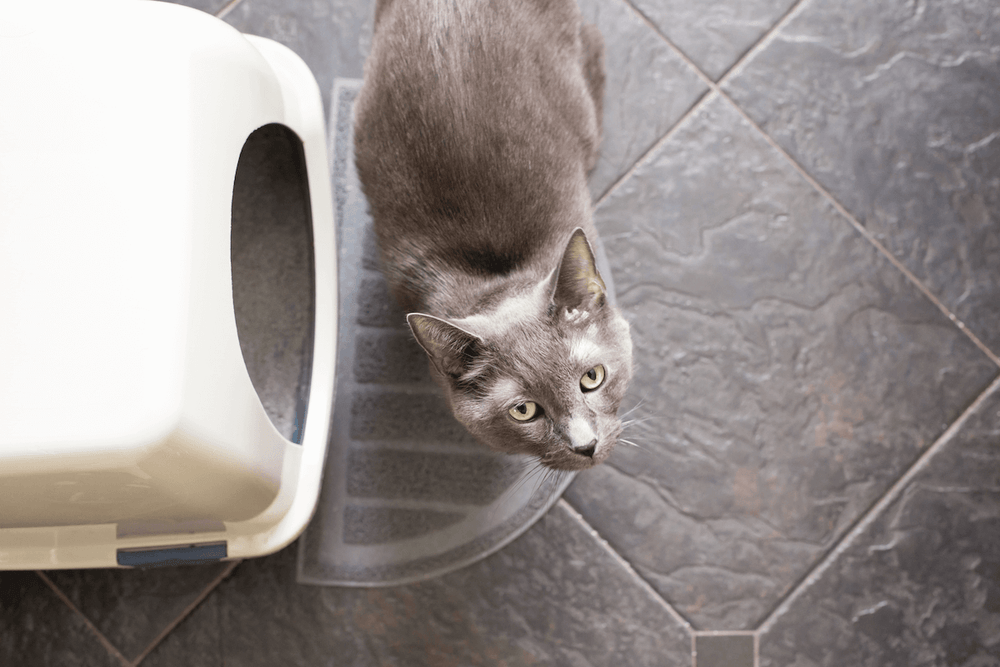
A story about litter...
Before we begin, do you know the history of litter? Litter, as we know it, was born in the 1950s in the United States. It is said that a neighbor of a certain Edward Lowe asked him for sand for her cat, because she was annoyed that his mustachioed man was spreading ash all over her house. At the time, in fact, ash was mainly used as litter.
E. Lowe, whose family ran a company that made industrial absorbent products, advised her to use clay instead of sand. She was quickly convinced and wanted to use only clay for her cat's toilet. Smart as a fool, Mr. Lowe then started offering it in a small store for all animals. And 70 years later, clay or mineral litter is a fixture in the homes of thousands of French people.
Let's close the parenthesis and return to our purring... er, to our litter box worries.
The cat is naturally a very clean animal; in the wild, it does its small and large business in corners and covers its excrement and urine so that no predator can follow its trail. And even domesticated, it has kept this survival instinct.
But here's the thing, some cats have decided not to use their litter box and pee and poop all over the house. Some even do it right next to their toilet... hum hum 😼 Why and what to do? We'll explain everything to you.
My cat doesn't use his litter box: why and what are the solutions?
The reasons can be multiple and more or less serious.
A health problem
Cystitis
First of all, make sure with your veterinarian that your little cat does not have any health problems.
A medical cause may well explain his refusal to use the litter box, which is particularly the case for cats suffering from cystitis, a urinary disorder characterized by inflammation (with or without infection) of the bladder wall. Associating their toilet with their pain, they tend to urinate elsewhere.
A cat with cystitis often relieves itself outside the litter box , but also exhibits other symptoms: meowing before urinating or while urinating, licking its genital area excessively, or trying to urinate but not successfully.
We tell you more in our article on cystitis in cats .
Constipation
Just like cystitis, constipation can be the cause of his refusal to use his litter box. Suffering in his intestines, he may also associate his pain with his toilet and prefer to relieve himself elsewhere.
A constipated cat has other symptoms: its stomach is tense, its stools are hard , dry and very dark, it sometimes lets out plaintive meows before doing its big business.
If you notice these signs and have the slightest doubt, consult your veterinarian quickly. Constipation in cats is a disorder that should not be taken lightly, especially if it persists for more than 48 hours. Accompanied by other symptoms such as vomiting, fever and anorexia, it can be a sign of intestinal obstruction.
To learn more, please read our article on constipation in cats.
Your little cat is stressed
Stress can trigger unusual behavior in our whiskers. And quite often, their anxiety can translate into little pees outside the litter box.
For our cats, there can be many sources of stress: a move, a visit to the vet, a change of sofa, the arrival of a new person in the home (a child, a lover, an animal, etc.).
Try to determine the cause, alone, with your veterinarian or with the help of a feline behaviorist.
To relax your cat, there are several solutions. If his stress is due to the arrival of a child or a new animal at home for example, devote a little more time to cuddles and petting him. Your cat will feel a little less neglected and will regain self-confidence.
Whatever the cause, don't hesitate to use valerian, in spray or indoor diffuser, to put on music (yes, some music is relaxing for our cats), to send him messages or even to offer him hiding places.
This could be, for example, a Ziggy cardboard box that transforms into a cabin or a Catmobile 😻
Find on our blog lots of other tips for calming a stressed little cat .
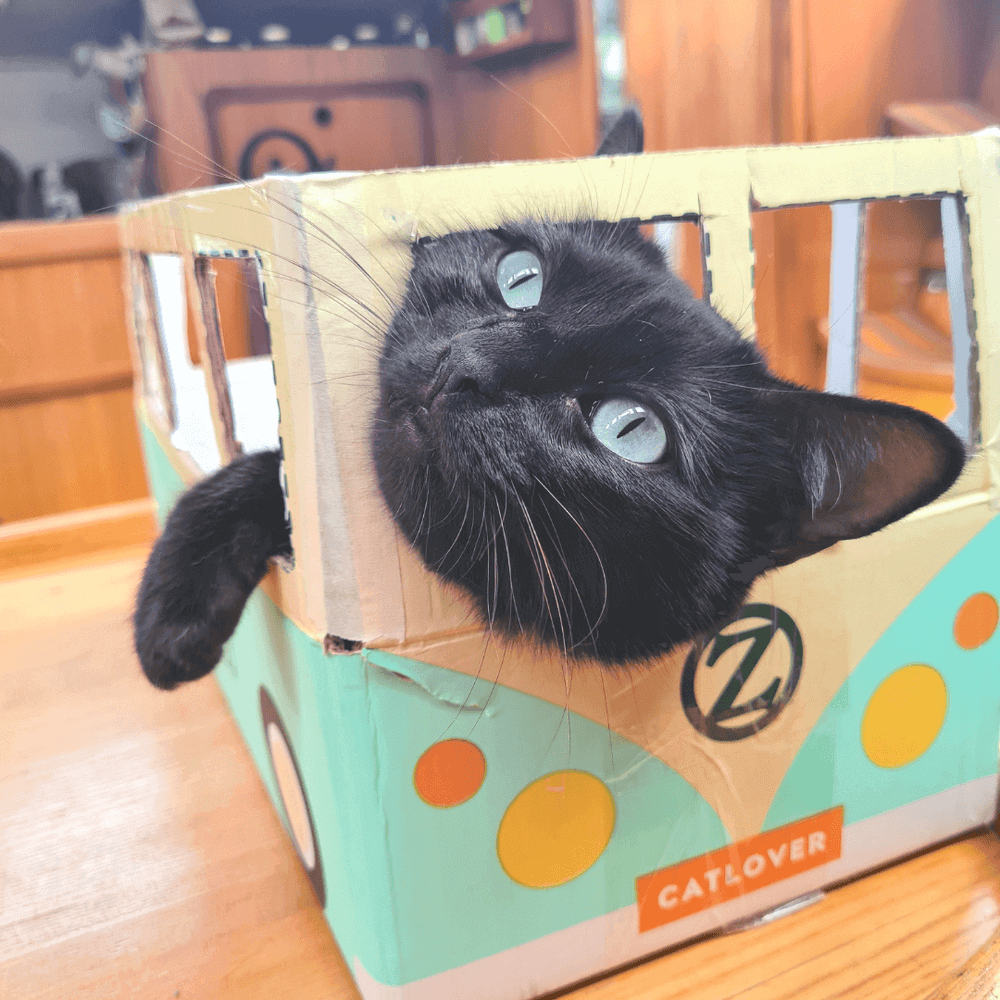
An unfinished apprenticeship
In cats, cleanliness is learned from birth. And it is their mother who teaches them all the basics of feline behavior. Until they are two or three months old (or even older), she takes care of their food and psychosocial weaning; she teaches the kitten to eat, wash itself, and do its small and large needs, where it is needed.
If your kitten is not going to the toilet, it may be because he was not potty trained by his mother. This often happens with kittens who were separated from their mother too early.
This reason is of course only hypothetical, because it is often difficult to know the past of your cat, especially if you found it or adopted it from an association that saved it from the street.
If your cat has never used the litter box, this is still a path to explore, and in this case, you will have to try to play the role of mother cat, by tenderly showing him the way to his toilet, by making a scratching movement to encourage him to do his business. This takes time and a lot of patience.
Don't hesitate to pet him, to offer him a small reward - like a little Ziggy pâté - if he manages to go to the litter box.
A dirty litter box
Our little cats are very delicate beings and particularly strict about their hygiene. If his litter box is not cleaned properly, your mustachioed one may turn his nose up at it and do his business elsewhere. Even a tiny bit of droppings in his litter box can put him off.
Remember to remove excrement and urine-soaked grains from the litter box at least once a day, using a small, suitable shovel. However, avoid cleaning the litter box after each use. Your cat will not understand your behavior.
And to avoid small accidents as much as possible, empty his litter box every week and clean it with water or a little bleach. Our cats love the smell of bleach, they find it a little easier to go to a toilet that smells good. Be careful, however, not to clean surfaces soiled by his external reliefs with bleach. Kitty will definitely start again in the same place.
Unsuitable litter
Very demanding about their hygiene, our cats are also very demanding about their comfort. A litter that is uncomfortable for their little paws can bother them. The grains may be too hard, too soft, too small or too big. And for His Majesty, his toilet can only be worthy of his pedigree.
Note that an unsuitable litter box can be a source of stress for cats. Stress can promote the appearance of urinary disorders , such as cystitis.
Above all, avoid scented litters. These are certainly practical for our nostrils, but let's not forget that our cats mark their territory through their excrement and urine, they like to go to places where they find their scents. If its litter smells like eucalyptus or Madagascar vanilla, your cat will not set foot in it.
The other advantage of plant litter is that its smell is natural. Its nose will not be bothered by potentially chemical odors.
Tip: If you change his litter, remember to make a small transition, just like with his food. Our whiskered roommates are very sensitive to change. We recommend mixing your old one with the new one for several days, until your cat accepts it.
To learn more, don't hesitate to consult our dedicated article on kitty litter. We give you plenty of advice on choosing the best litter for your cat (and you).
Improper litter
Another reason: the shape or size of the litter box may displease him. For example, some cats do not like to do their business in a closed box because they cannot monitor their surroundings. However, it is when they pee or poop that they are most vulnerable.
Others find their litter box too small. They like to have space to do their business and scratch deeply to cover their excrement.
Note that if you have multiple cats, it will be best to put a litter box for each cat , plus one just in case. A litter box for two can cause territorial issues.
The location of the litter box
Your cat's litter box should be easily accessible and away from any sources of agitation. If you have placed it in a place with traffic, your little companion may feel stressed and therefore refuse to go there.
We advise you to put his litter box in a quiet place, where he can do his business in peace. For example, avoid installing it in the kitchen or in a hallway.
We hope that with all our advice your little cat will find its way back to the litter box.
Your cat only pees on your bed? You can also find all our advice in our dedicated article: My cat pees on my bed: how can I stop it?
And we will never stop repeating it at Ziggy, a healthy, complete and quality diet is the key to good health: excellent digestion, nice little droppings and diluted urine.
Please feel free to contact us if you have any questions at hello@ziggyfamily.com .




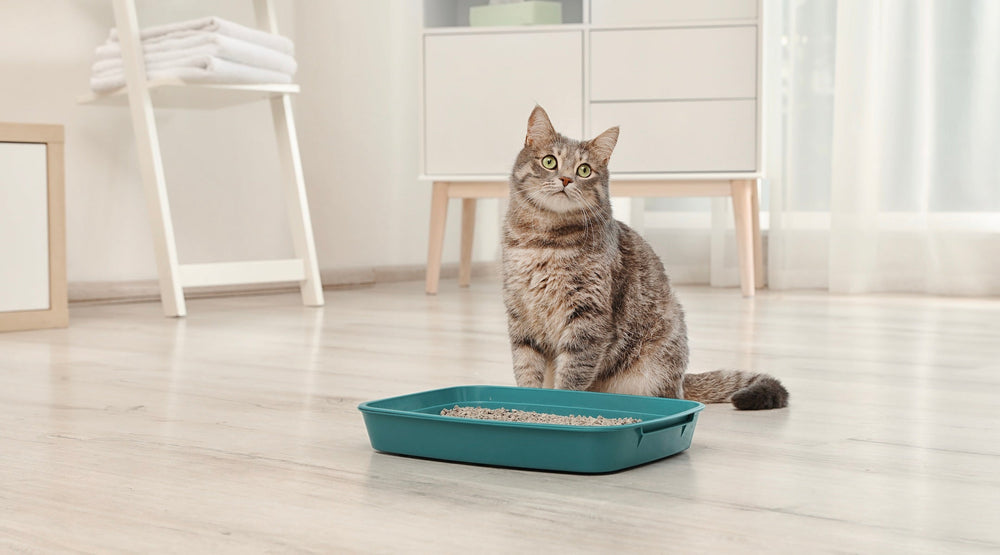
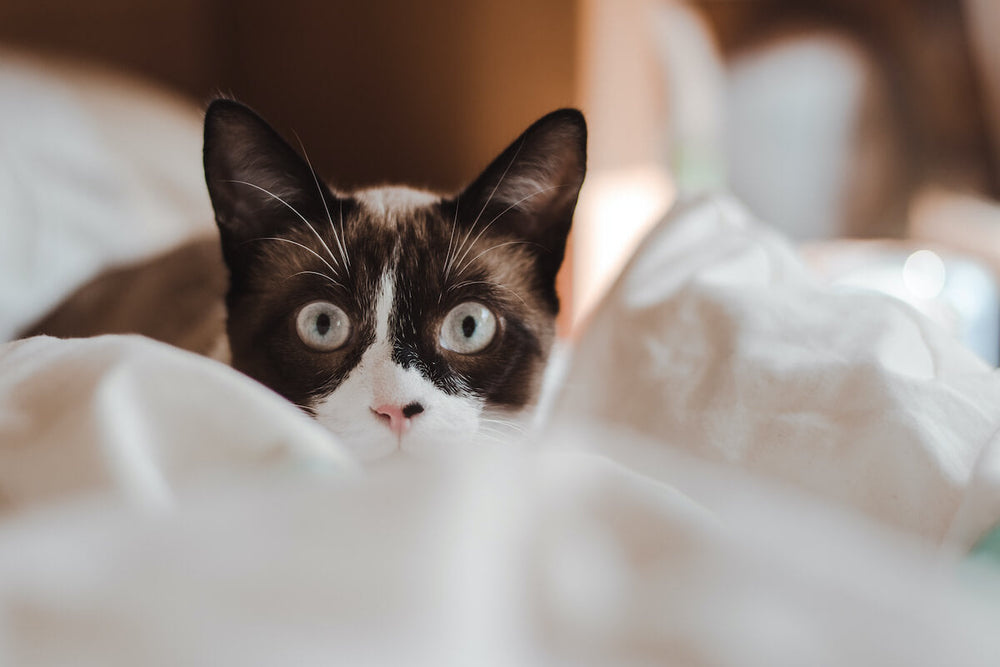
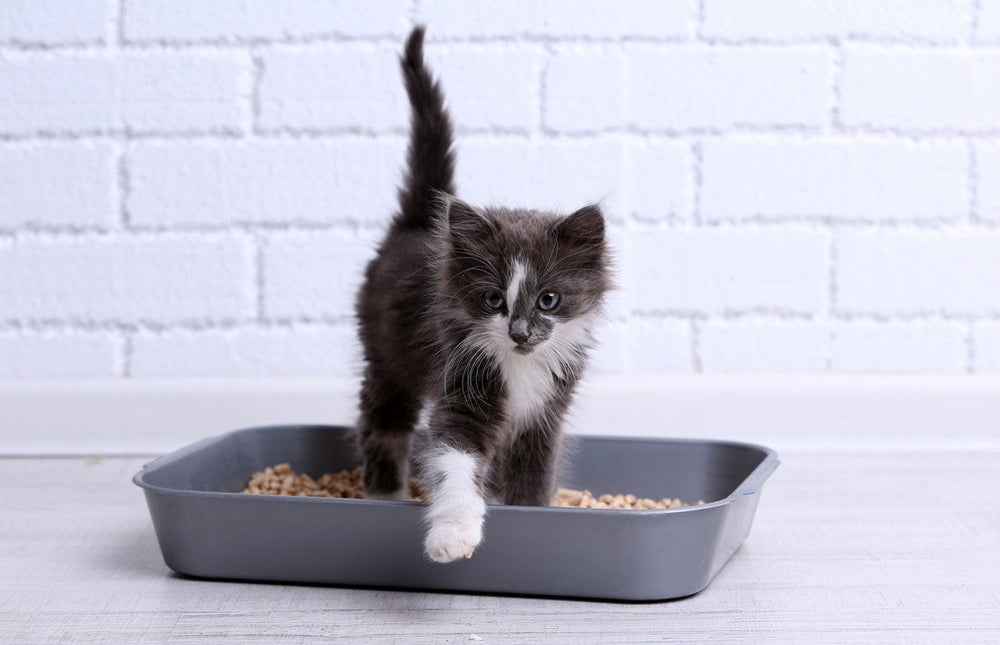


Leave a comment